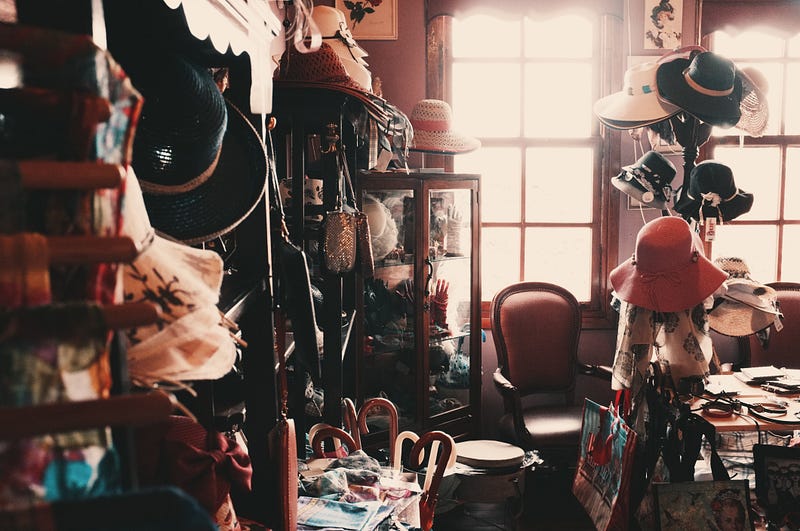# Debunking Common Misconceptions About Clutter and Minimalism
Written on
Chapter 1: Understanding the Myths of Clutter
There’s a popular saying that goes, “It’s better to have it and not need it than to need it and not have it.” Many individuals subscribe to this notion. However, the reality is that numerous items we cling to "just in case" are often unnecessary. These possessions can clutter our drawers, cabinets, and storage spaces, detracting from our ability to enjoy our living areas.
People often perceive it as wasteful to part with items that are still in good condition. This mindset must shift. Is it truly wasteful to gift something valuable to someone who can use it, or to sell it for some profit, even if it’s less than what you initially spent? Alternatively, is it more wasteful to store items in the back of a closet or pay for storage space without ever using them? Holding onto these things doesn't return your investment in any way.
Many parents believe that they cannot maintain a clutter-free home. This is a misconception. I personally know several single mothers who manage to keep their living spaces organized, which significantly eases their daily challenges. A clutter-free environment can alleviate stress, chaos, and fatigue.
Another common assumption is that those who live clutter-free are obsessive cleaners. However, cleaning doesn’t have to be an enthusiastic endeavor. With fewer items, tidying up becomes a much simpler task. So, even if you’re not inclined to clean regularly, reducing clutter can make it easier.
Some may feel it’s impolite to dispose of gifts. While it’s thoughtful to cherish these tokens, it’s essential to remember that the sentiment behind a gift is what truly matters. Once a gift is received, it becomes yours to manage as you see fit.
Decluttering can be challenging if others in your household are not on the same page. It can be frustrating to have someone constantly introduce new items that undo your progress. However, even if you are the only one decluttering, you’ll still notice improvements in your space.
When people claim they need additional storage, it’s often a sign that they need to simplify their possessions instead. By evaluating what you genuinely use, you may find that there are many items you can part with, making the need for extra storage unnecessary.
Some individuals claim sentimental attachments prevent them from discarding items. This emotional connection can hinder the creation of a desired space. When everything is deemed sentimental, it can lead to a cluttered environment.
A misconception is that a clutter-free space equates to an absence of joy. In reality, the goal of decluttering is to cultivate joy by allowing you to appreciate the items that genuinely matter, rather than being overwhelmed by those you rarely use.
Many believe that letting go of possessions is a luxury they cannot afford. However, if you’re not using certain items, they simply contribute to clutter. Discarding these can actually improve your financial situation, as you may find opportunities to sell them, especially in a home filled with excess.
Lastly, the fear of losing a part of oneself when letting go of possessions is a common concern. While it can be daunting to part with items that seem permanent, this doesn’t mean you’ll lose your identity or memories. Often, letting go allows for new experiences and memories to flourish.
The first video titled "20 Lies About Clutter | Stop Believing This!" explores common misconceptions about clutter and encourages viewers to rethink their attachment to possessions.
Chapter 2: Overcoming Barriers to Minimalism
The second video, "Lies We Tell Ourselves About Our Clutter | Overcoming Barriers to Minimalism," delves into the internal battles that prevent people from embracing a minimalist lifestyle and offers strategies to overcome these challenges.
